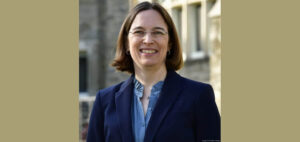Recent months have seen a surge in women enrolling in courses associated to higher predicted career earnings and a leap in women’s part-time employment, which has contributed to the greatest advances for economic equality in two years, according to the Women’s Index.
In the September quarter, the Financy Women’s Index saw its largest growth in two years, rising by 2% to 78.1 points. The increase solidifies the reversal of women’s financial advancement subsequent to the reduction encountered amid the epidemic.
Because more women were working part-time in the September quarter, the rate of underemployment among women decreased by 7.36%. Concurrently, there was a 5.59% decline in the rate of underemployment among men.
In the meantime, women are enrolling in IT education courses at a rate that is higher than that of men. The best paying educational field for women to pursue is information technology. Even still, there are still a third fewer women enrolled in these courses than males, even though more of them are doing so.
In light of the weakening economy, Bianca Hartge-Hazelman, the founder of Financy, believes the developments are positive for women’s equality.
“The Index’s underlying data was volatile during the pandemic’s peak, and when we compare our current position to September 2020, the Index is less than 1 point (0.84) higher—a poor result.”Having said that, the Index is now over 5 points higher than it was in December 2019, the month before the outbreak. This points to a correction in the Index toward a more consistent pattern of growth, but the employment situation for both men and women in the economy is still worrying.
According to Hartge-Hazelman, legislation and collective action are required to ensure that women’s economic equality continues to advance.
The Women’s Economic Equality Taskforce Final Report was given to the Australian government, and Professor Claudia Goldin received the Nobel Prize in Economics for her work raising awareness of the gender pay gap and its causes. These events have had a significant impact on gender equity, according to Hartge-Hazelman.
“To accelerate the progress towards equality, a shift in focus from the increasing awareness of economic inequality to a collaborative environment involving government agencies, corporations, and individuals is required.”
Increasing financial education in schools can aid in closing the knowledge gap between men and women about money, according to Dr. Tracey West, manager of financial education at Ecstra Foundation.




